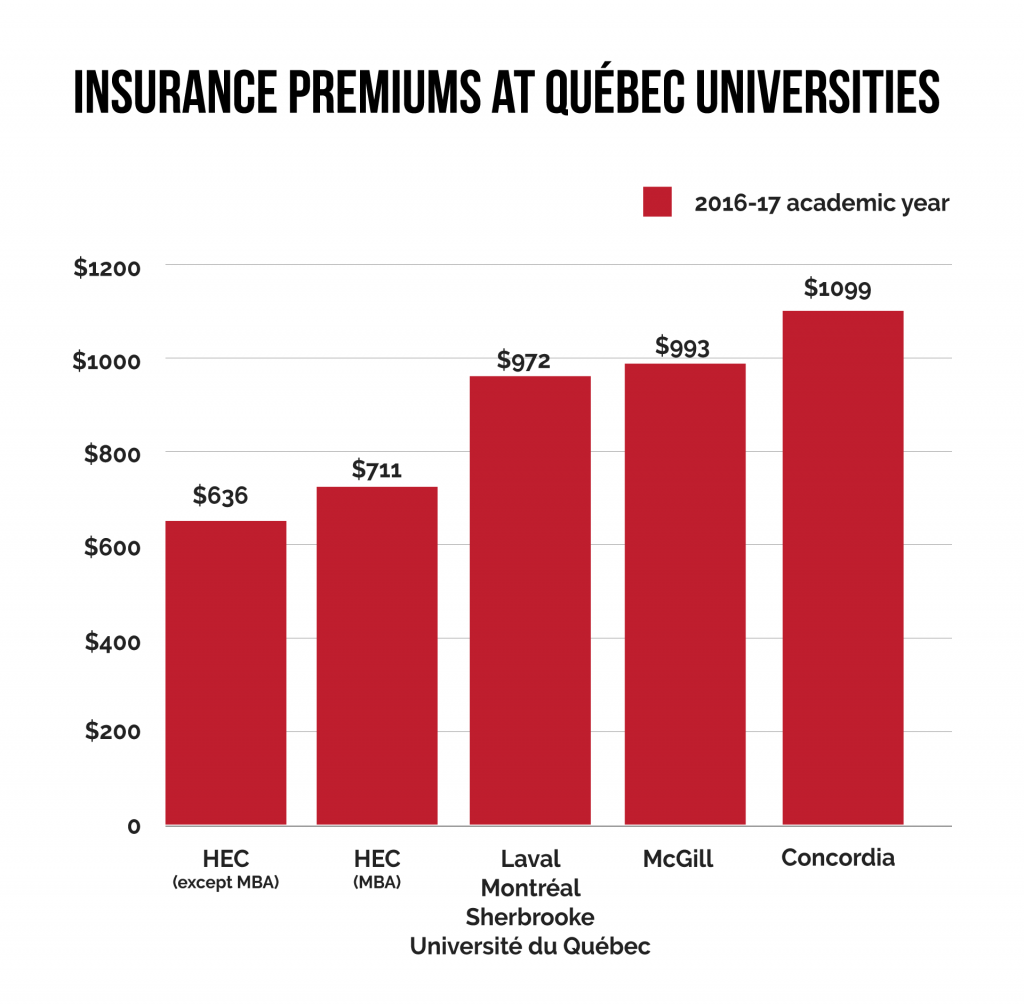Petitions Delivered! On April 17th we delivered over 2,600 signatures to the Concordia Board of Governors stating students’ opposition to tuition hikes. We have not yet received a response. Last month, a university administrator hinted that international tuition fees would be discussed at the next Board of Governors meeting in May, so our movement continues! Be sure to check out this student-run Facebook page for more updates about tuition hikes.
Have you heard that international student tuition has been deregulated?
In 2018 the Quebec government stopped funding international students in most programs and levels of study (with a few exceptions)*¹. Now, universities are free to charge international students as much as they want!¹ Concordia’s Board of Governors will soon decide how much to increase tuition, but together, we can stop the hikes!
Why does this matter?
Since 2008 the provincial government has been slowly deregulating international tuition program by program.² This represents yet another nail in the coffin of accessible education; by completely privatizing education for all international students, they are making sure that only those who are already wealthy can access higher education. Their strategy is to divide and conquer, so we need to stand united and fight regardless of our individual backgrounds and circumstances.
Think that’s fucked up?
You can get involved in the campaign to stop the hikes. There is a long tradition of fighting—and stopping—tuition hikes in Quebec.³ In 2016 the Concordia Board of Governors tried to increase tuition for certain international students.⁴ By actively voicing our opposition, students succeeded in stopping the hikes then, and we’ll do it again!
Common misconceptions about international tuition:
❌ International students should pay more tuition because they don’t pay taxes.
✅ International students in Québec contribute significantly to the provincial and federal economies.⁵ They do pay taxes, both as consumers (QST and GST) and as future residents (51-60% of international students in Canada plan to apply for permanent residency⁶). They also pay income taxes, because all Canadian jobs are taxable.⁷ Quebec international students collectively generated $1.5 billion in in 2014!⁸ Despite the fact that international students pay taxes as well as make meaningful academic, cultural, scientific, artistic, political, and other contributions during their stay here, they are being treated like cash cows.
❌ International students who come to Canada for university are typically well-off, so they have no trouble paying extra tuition.
✅ This is a harmful stereotype. Many international students report difficulties in finding part-time jobs, and financial aid is not always sufficient to cover basic living costs.⁹ A 2018 study reported that 37-46% of international students feel “very concerned” about their ability to afford housing, and this is particularly true for racialized international students.¹⁰
❌ International students pay less to attend university in Canada than they do in other countries.
✅ Canada is actually on the expensive side compared to many other countries. For example, the average cost of international tuition in Europe is about $12,997/year¹¹ compared to $19,802/year on average at Concordia. In any case, it shouldn’t matter whether it’s more or less expensive to study here than to study elsewhere. The cost of tuition is making higher education less accessible for many people, and that’s unacceptable!
Concordia has a long standing habit of mismanaging its funds.
 This has resulted in the university…
This has resulted in the university…
- …losing long-time donors over financial mismanagement.¹²
- …being fined $2 million by the Québec government for giving outgoing senior administrators overly-generous severance packages in 2012.¹³
- …awarding a $235,000 severance package to the outgoing Chief Financial Officer after just 90 days on the job in 2016.¹⁴
Why should international students have to foot the bill for Concordia’s mistakes?
Concordia has the most expensive group health insurance rate for international students in Canada.
International students are required to have health insurance by law in order to be permitted into Canada on a study permit. In five provinces, they are able to enrol in the provincial medicare system directly, but in Quebec, most international students buy health insurance through their universities.** ¹⁷
The national average price for a single 12-month plan is $761.88, and the median price is $650.¹⁸ Concordia is the most expensive at $1,176,¹⁹ and it doesn’t even cover dental care or vision care.²⁰ What’s more is that the cost of the premium increases have been rising significantly faster than the rate of inflation.
Although international student health plans are managed by student unions at many Canadian universities, at Concordia it is managed by the University directly. The CSU strongly believes that we can offer international students a plan that is cheaper, more comprehensive, and more accountable to the students that pay into it.
The gold standard remains full provincial RAMQ coverage for all international students. But, until the government of Quebec chooses to base its health care system on RAMQ cards instead of credit cards, Concordia must take action to make its plan affordable.
International health insurance can be more affordable and more comprehensive. We demand that Concordia give negotiation power for the international health plan to the CSU and GSA.


Further reading
Austerity
- “Montreal’s student austerity protests: everything you need to know.” (2015) https://www.mtlblog.com/opinions/montreals-student-austerity-protests-everything-you-need-to-know-but-were-too-afraid-to-ask
- Graefe, Peter. “Austerity in Québec: Neither romance nor despair.” (December 2016) https://altausterity.mcmaster.ca/documents/w5-aug-1-2017-peter-graefe-austerity-in-quebec.pdf
- “Québec voters have had it up to here with austerity: poll.” (May 2018) https://montrealgazette.com/news/local-news/quebec-voters-have-had-it-up-to-here-with-austerity-poll
Privatization of Education
- Adamson, Frank. 2016. “Privatization or Public Investment in Education?” Stanford Center for Opportunity Policy in Education. https://edpolicy.stanford.edu/sites/default/files/publications/scope-investment-public-ed-brief-final.pdf
- Davidson-Harden, Adam, and Suzanne Majhanovich. 2004. “Privatization of education in Canada: a survey of trends.”
International Review of Education. 50(3/4): 263-287. https://www.jstor.org/stable/pdf/4151599 - Maharaj, Sachin. 2015. “Do Private Schools Provide a Better Education?” The Star. https://www.thestar.com/opinion/commentary/2015/04/06/do-private-schools-provide-a-better-education.html
- Polster, Claire. 2005. “Privatizing Canada’s Public Universities.” Canadian Dimension 39(5). https://canadiandimension.com/articles/view/privatizing-canadas-public-universities-claire-polster
- Ramsankar, H. Mark. 2017. “‘Made in Canada’ education privatization.” Perspectives
26. https://perspectives.ctf-fce.ca/en/article/3144/